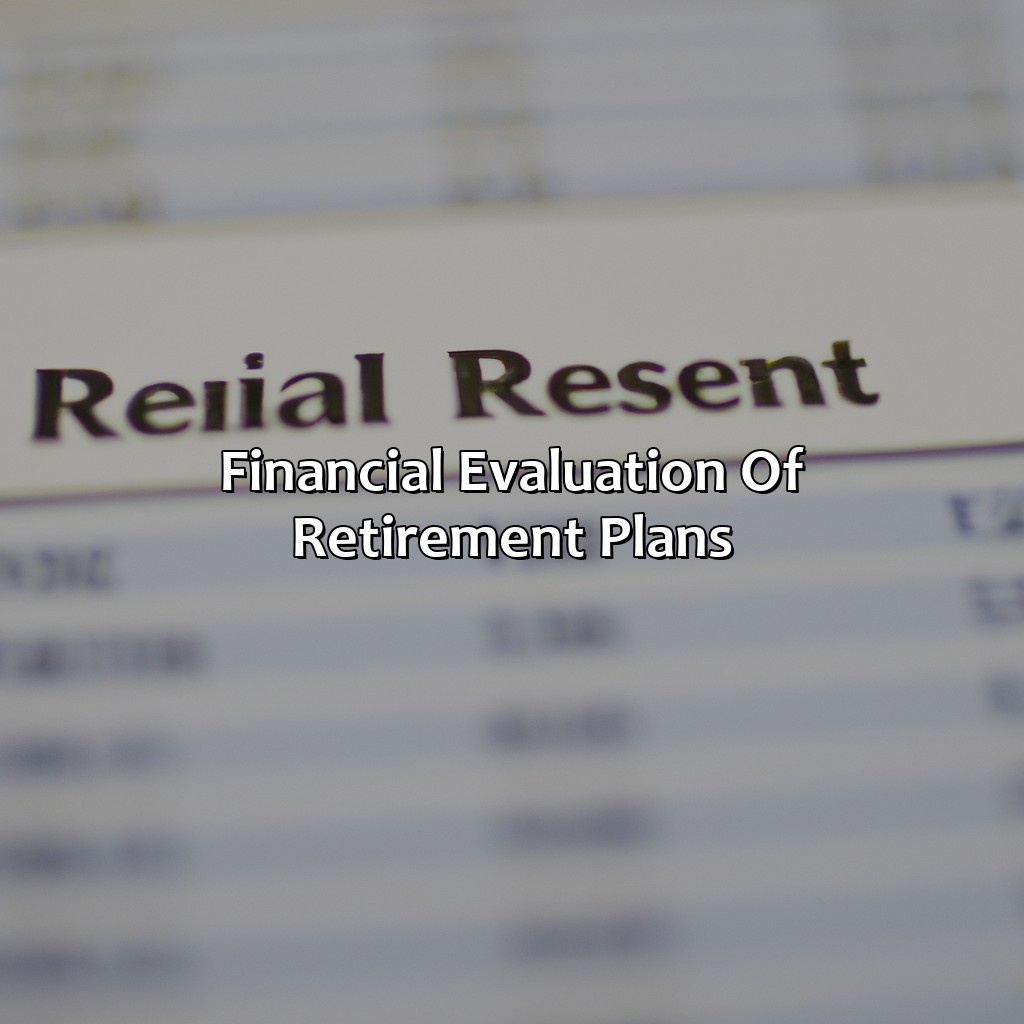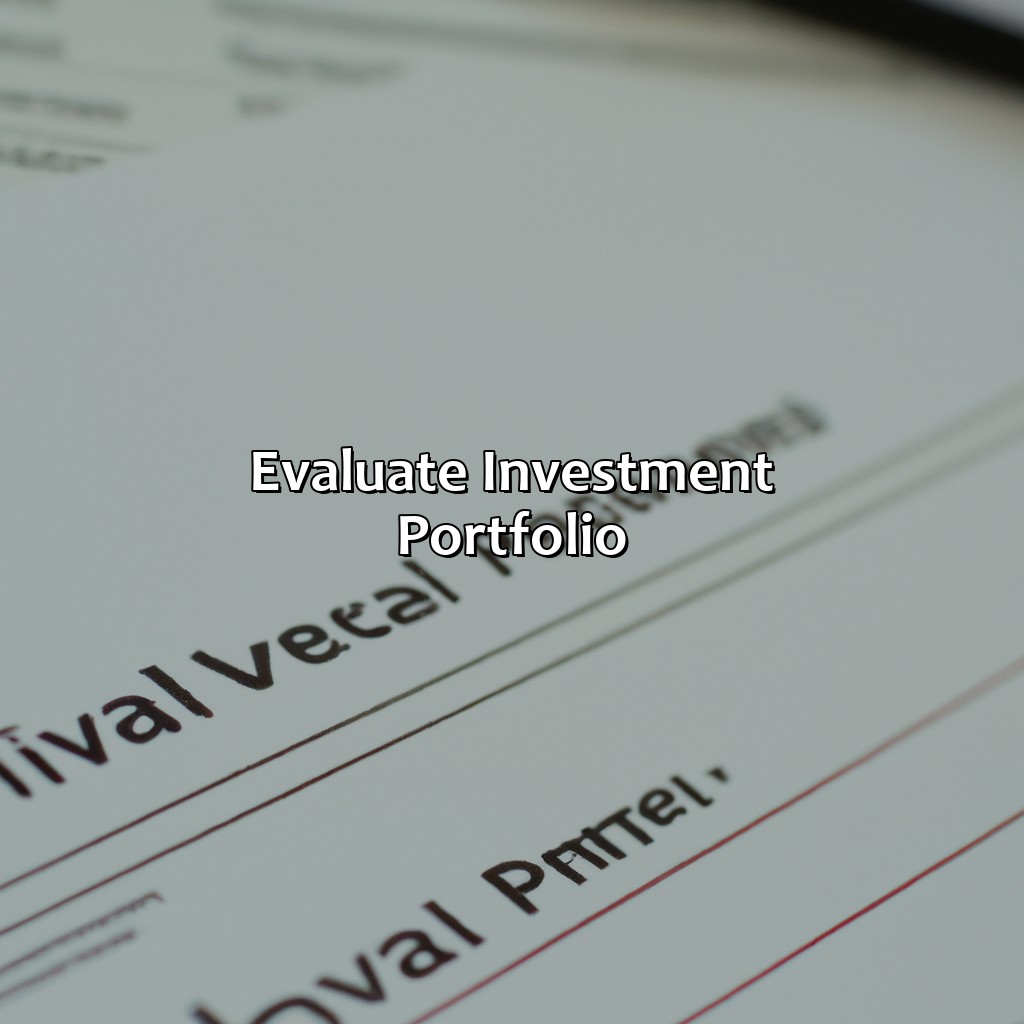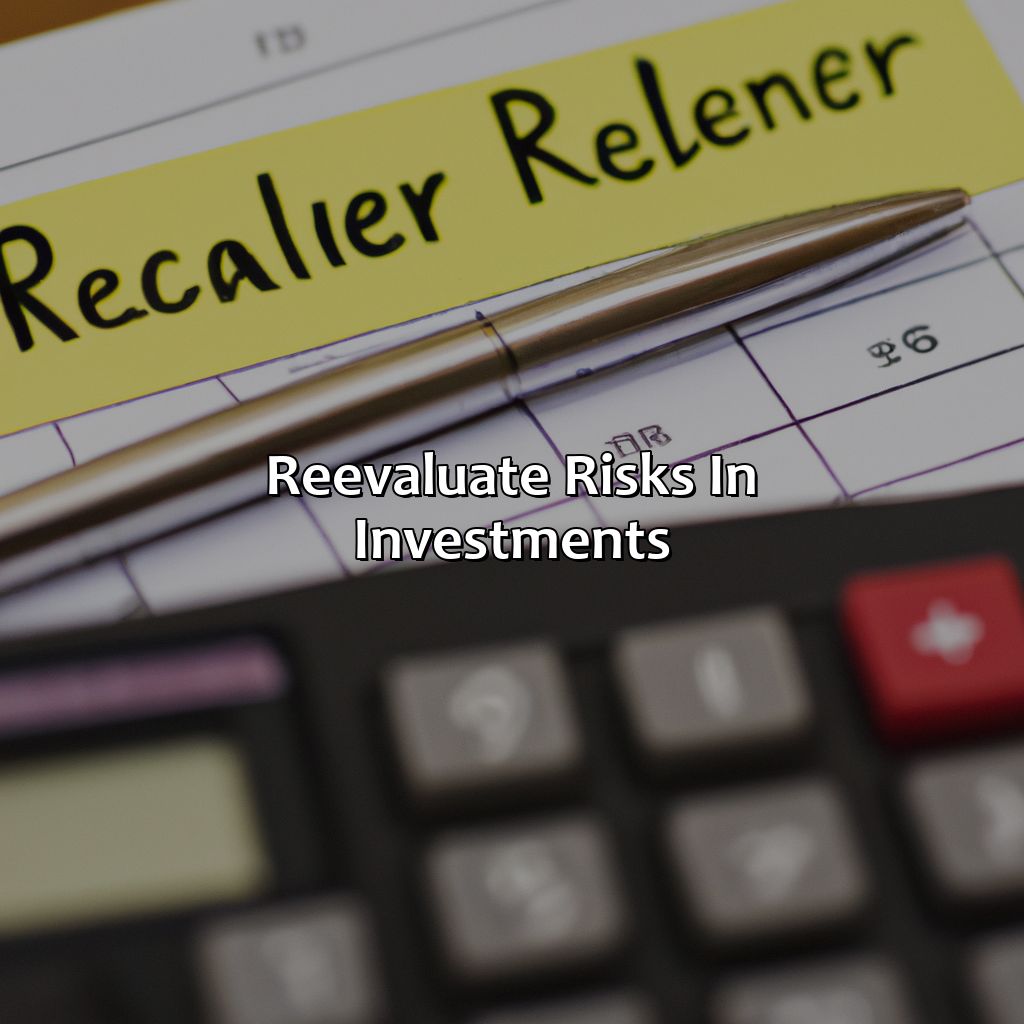What Should I Do 2 Years Before Retirement?
Key Takeaway:
- Conduct a financial evaluation of retirement plans two years before retirement to ensure that you have enough savings and income to support your lifestyle after retiring. This evaluation should take into account your expected retirement expenses and income, including Social Security benefits, pension payments, and withdrawals from savings.
- Adjust your current budget to prepare for retirement by eliminating unnecessary expenses and reducing debt. This can help ensure that you are able to live on a fixed income after retiring without sacrificing your quality of life.
- Maximize retirement contributions by making catch-up contributions to your 401(k) or IRA if you are over 50. This can help boost your retirement savings and ensure that you have enough money to support your lifestyle in retirement.
- Consider healthcare costs and insurance coverage by reviewing your current insurance policies and planning for potential healthcare needs in retirement. This may involve purchasing additional insurance or setting aside money for out-of-pocket expenses.
- Calculate Social Security benefits by reviewing your earnings history and estimating your benefits using the Social Security Administration’s online calculators. This can help you plan for how much income you will have in retirement.
- Pay off debts before retirement to reduce your expenses and minimize financial stress during retirement. This may involve prioritizing high-interest debt or consolidating debt into a lower interest rate loan.
- Evaluate your investment portfolio to ensure that it aligns with your retirement goals and risk tolerance. This may involve rebalancing your portfolio or adjusting your asset allocation to reduce risk.
- Consider downsizing and relocating to a more affordable home or city to reduce expenses and maximize your retirement savings. This can also help you live a more manageable lifestyle in retirement.
- Re-evaluate risks in investments by reviewing the performance and stability of your current investments and considering alternative investments to reduce risk and increase returns.
- Meet with a financial advisor to get personalized advice and develop a comprehensive retirement plan that addresses your specific needs and goals.
You are approaching retirement, and have 2 years to make your plans. Are you worried about what to do and how to make the transition go smoothly? This article answers all your questions, providing advice on how best to prepare for retirement and ensure a successful transition.
Financial evaluation of retirement plans
In considering retirement plans, it is crucial to evaluate one’s financial situation. This involves reviewing savings, investments, and potential income sources. A comprehensive analysis of retirement plans is necessary to determine the most suitable option.
A Table for the financial evaluation of retirement plans can include columns such as Savings, Pension income, Social Security benefits, 401(k) or other retirement accounts, and Real estate assets. The table can be used to calculate the total value of assets and expected income in retirement.
Additionally, it is imperative to consider expenses in retirement, including healthcare costs, daily living expenses, and leisure activities. These costs can significantly impact retirement plans.
A recent report by the Employee Benefit Research Institute showed that only 42% of workers have tried to calculate how much money they will need to live comfortably in retirement.
It is essential to start planning early and seek advice from a trusted financial advisor to ensure a successful retirement plan.

Image credits: retiregenz.com by Adam Arnold
Adjust current budget
Adjusting Your Finances Two Years Before Retirement
When you are two years away from retirement, it is essential to reevaluate your finances. This process should involve examining your current budget to determine if you can make any adjustments that will improve your financial stability in retirement.
To adjust your finances two years before retirement, consider reducing expenses that are not essential and increasing your contributions to retirement accounts. You should also consider downsizing your home and paying off any outstanding debts as this will allow you to have more cash at your disposal when you retire.
Furthermore, it is crucial to evaluate your current investment portfolio to ensure that it is aligned with your retirement goals. You may need to adjust your investment strategy to achieve the best returns while keeping your risk tolerance in mind.
Lastly, planning for retirement requires discipline and a good understanding of your financial situation. By seeking advice from a financial planner or expert, you can ensure that you are on track to meet your retirement goals.
A true story of a couple who retired without adequate financial planning highlights the need to adjust your finances early. The couple had to delay retirement and downsize their home to make ends meet. Their story shows the importance of starting early and making necessary adjustments to ensure a comfortable retirement.

Image credits: retiregenz.com by David Woodhock
Maximize retirement contributions
To ensure a financially secure retirement, it is important to make the most of retirement contribution options. Here are some ways to optimize retirement savings.
- Consider maxing out your 401(k) or IRA contribution limits to take advantage of the tax-deferred growth and compound interest.
- Explore catch-up contribution options if you are over 50 years old.
- Invest in low-cost index funds or target-date funds to diversify and reduce fees.
- Take advantage of employer contributions by contributing enough to receive the full employer match.
- Consider contributing to a Health Savings Account (HSA), if available, to save on taxes and use for retirement health expenses.
- Finally, consult with a financial advisor to ensure you are on track to meet your retirement goals.
In addition to maximizing contribution limits, reducing overall expenses can also help increase retirement savings. Creating a financial plan and reevaluating spending habits can help maximize contributions even more.
Sarah, a 60-year-old retiree, was able to live comfortably in retirement thanks to maxing out her 401(k) contributions and receiving the full employer match. She also utilized catch-up contributions and low-cost index funds to increase her savings. As a result, she was able to retire at 62 with peace of mind and financial security.

Image credits: retiregenz.com by Adam Jones
Consider healthcare costs and insurance coverage
As retirement approaches, it’s important to consider healthcare coverage and related expenses. Planning ahead can prevent financial stress and ensure access to the necessary care. Evaluate your current insurance and explore options like Medicare and supplemental policies. Additionally, consider factors like prescription drug costs and potential healthcare needs in the future. Investing in a health savings account can provide a tax-free source of funds for medical expenses. Lastly, consult with a financial advisor to determine the best approach for your individual situation.
Pro Tip: Don’t wait until retirement to start planning for healthcare costs. Start evaluating your options and building funds as early as possible.

Image credits: retiregenz.com by Yuval Woodhock
Calculate Social Security benefits
Determine Social Security Payouts
Calculating Social Security benefits is an important step to take two years before retirement. To determine the amount you will receive, you must consider your earnings history and retirement age.
Social Security Benefits Calculation Table
To calculate Social Security benefits, refer to the table below. The amount you will receive is based on the year you turn 62 and your average indexed monthly earnings. Consult the official Social Security website for the current year’s calculation formula.
| Year You Turn 62 | Average Indexed Monthly Earnings |
|---|---|
| 2020 | $2,687 |
| 2021 | $2,791 |
| 2022 | $2,908 |
| 2023 and later | $3,011 |
Unique Details on Social Security
It is also important to note that Social Security benefits are adjusted annually for inflation. You may also be eligible for spousal benefits or survivor benefits, which can add to your overall payout. Consider speaking with a financial advisor to determine the best strategy for maximizing your benefits.
True Fact
According to a report by the Social Security Administration, nearly 9 out of 10 individuals aged 65 and older receive Social Security benefits.

Image credits: retiregenz.com by Joel Woodhock
Pay off debts
Paying Off Your Debts Prior to Retirement
It is crucial to pay off your debts before retirement so that you can enjoy a stress-free life without worries about paying off bills. Create a plan by analyzing your debts and prioritizing them by interest rates. Make sure to pay off high-interest debts first to save more money in the long run.
Additionally, consider consolidating multiple debts into one loan with a lower interest rate or transferring balances to a credit card with a 0% introductory interest rate. However, be aware of any fees and read the terms and conditions before making any transfers or consolidations.
Furthermore, remember that paying off debts may take longer than expected, so start early and be consistent with payments. Plan out a budget and stick to it to maximize your debt repayment.
It is vital to note that not all debts are created equal and some may have tax benefits such as mortgages or student loans. Speak with a financial advisor to understand the best course of action for your situation.
In fact, a study showed that the average retiree has $130,000 of debt when they stop working, highlighting the importance of early debt repayment. Don’t let this be you, take action now to secure your financial future.

Image credits: retiregenz.com by Harry Washington
Evaluate investment portfolio
Maximizing Retirement Portfolio Profits
Two years before retirement, one must prepare a winning retirement portfolio that can ensure maximum profits. This requires the evaluation of the current investment portfolio in light of future retirement goals.
- Diversify Portfolio: Evaluate the portfolio to ensure there is a good mix of investments, such as stocks, bonds, and real estate to minimize risk.
- Maintain and update portfolio: Assess the portfolio performance and make required adjustments to keep up with the market and maintain profits.
- Focus on higher return investments: Review the portfolio to select high return investments to secure higher profits.
Besides evaluating investments in your portfolio, it is important to balance your portfolio with your age and risk tolerance level. One must also consider tax implications of the investments, and avoid emotional or impulsive decisions that could negatively impact the portfolio.
A Vanguard study in 2020 found that the average retirement savings for people aged 55-64 is approximately $225,000.

Image credits: retiregenz.com by Joel Woodhock
Consider downsizing and relocating
As you prepare to retire in two years, it may be wise to explore the option of downsizing your current living situation and relocating to a more suitable area. Moving to a smaller home can reduce your expenses, and a new location may offer a more fulfilling retirement lifestyle.
Consider exploring areas with a lower cost of living, access to healthcare, and a community that aligns with your interests. Additionally, look for homes with reduced maintenance and repairs, and consider the potential resale value of the property.
It is also important to factor in proximity to family and friends, as a strong support network can enhance your retirement experience. Consider visiting the areas of interest in person to fully assess the potential for a successful relocation.
A couple in their early 60s decided to downsize and relocate to a warmer climate, allowing them to pursue outdoor activities year-round. They conducted extensive research and visited several locations before choosing a community that met their needs and lifestyle goals. This decision allowed them to reduce their expenses, mitigate health concerns, and enhance their lifestyle.

Image credits: retiregenz.com by Harry Arnold
Re-evaluate risks in investments
In preparing for retirement, it is essential to re-evaluate the risks in your investments periodically. Ensuring that your portfolio is in line with your long-term goals and risk tolerance can help you avoid any detrimental impact on your retirement plans. Keep a close eye on market trends and adjust your investments accordingly to balance risk and reward.
Having a diverse portfolio can help minimize overall risk exposure and should not be neglected. Bear in mind that being too conservative may limit your potential returns whilst being too risky may cause significant losses. Professional financial advisors can help in striking the right balance to meet your goals within your risk appetite.
It is essential to understand market volatility and control your emotional response to it. Don’t let market rumors affect your long-term investment strategy. Instead, stick to your pre-determined plan and systematic investment approach.
Many investors tend to sell stocks when markets are volatile, a case in point being the 2008 financial crisis. One example of how emotions can affect investments is a retired person who sold all their stocks during the 2008 financial crisis only to miss out on the market’s subsequent high returns. It highlights the importance of a well-planned and executed investment strategy that factors in market volatility.
Keeping a balanced portfolio that considers your long-term goals and risk tolerance is key to a successful retirement. Re-evaluation of your investment risks over time plays a vital part in achieving this.

Image credits: retiregenz.com by Harry Arnold
Meet with financial advisor
Beginning Your Retirement Plan with a Professional Financial Advisor
It is recommended to start your retirement plan two years ahead by seeking professional assistance from a financial advisor. With their expertise, you can map out a personalized plan, reexamine your investment portfolio, maximize your retirement accounts, and ensure a steady income stream.
A financial advisor can also guide you through ways to minimize tax obligations while optimizing your savings. They can help you evaluate Social Security and Medicare options and evaluate long-term insurance.
In addition, you can evaluate your current expenses, debts, and lifestyle choices to see where you can cut down costs and increase savings.
Don’t miss out on a comfortable retirement. Seek a financial advisor’s guidance now and take charge of your future financial security.

Image credits: retiregenz.com by Harry Woodhock
Some Facts About What To Do 2 Years Before Retirement:
- ✅ Start planning for your retirement 2-5 years in advance. (Source: AARP)
- ✅ Assess your retirement savings and make adjustments as needed to meet your goals. (Source: Fidelity)
- ✅ Consider working with a financial planner to create a retirement plan tailored to your needs and lifestyle. (Source: Forbes)
- ✅ Evaluate your healthcare options and make sure you have adequate coverage for your retirement years. (Source: Investopedia)
- ✅ Plan for how you will spend your time in retirement, whether it’s traveling, volunteering, or taking up new hobbies. (Source: U.S. News & World Report)
FAQs about What Should I Do 2 Years Before Retirement?
What should I do 2 years before retirement?
As you approach retirement, there are several steps you should take to prepare for your post-employment life. Here are six things you should consider doing two years before retirement:
1. How should I evaluate my retirement savings?
The first thing you should do is evaluate your retirement savings to determine if you are on track to meet your retirement goals. You may want to consider meeting with a financial advisor to review your portfolio and make any necessary adjustments.
2. Should I pay off debts before retirement?
It’s generally a good idea to pay off any outstanding debts before you retire. This will help you reduce your expenses and allow you to use your retirement savings for other expenses.
3. What about healthcare costs?
You should consider your healthcare costs in retirement and evaluate your options for health insurance coverage. You may want to explore Medicare and supplemental insurance plans to ensure that you have adequate coverage for your medical needs.
4. Should I downsize my home?
Many retirees choose to downsize their homes to reduce expenses and simplify their lives. You may want to consider the costs and benefits of downsizing, including the potential for reducing housing expenses and freeing up equity in your home.
5. How should I plan for my social security benefits?
You should review your social security benefits and determine the best time to start taking payments. You may want to consult with a financial planner to help you evaluate your options and make an informed decision.
6. What else should I consider?
Other factors you may want to consider include your retirement lifestyle, travel plans, and hobbies. You should create a retirement budget to ensure that you have enough income to support your desired lifestyle.



